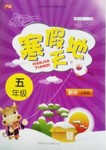题目内容
—He eventually realized his own fault and wanted to reform.
— .
A.It’s no use pumping a dry well. B.It never rains but it pours
C.Better safe than sorry D.Never too late to mend
D

 寒假天地重庆出版社系列答案
寒假天地重庆出版社系列答案Every pet owner loves his pet .There is no argument here.
But when we asked our readers whether they would clone their beloved animals , the responses were split(分裂) almost down the middle . Of the 228 readers who answered it ,108 would clone, 111 would not and nine weighed each side without offering an opinion .
Clearly, from readers’ response, this is an issue that reaches deeply into both the joy and eventual (最终的)sadness of owning a pet. It speaks, as well, to people’s widely differing expectations over the developing scientific procedure (步骤)
Most of the readers who favored the idea strongly believed it would produce at least a close copy of the original; many felt the process would actually return an exact copy. Those on the other side, however, held little hope that clone could truly recreate a pet; many simply did not wish to go against the natural law of life and death.
Both sides expressed equal love for their animals. More of them owned “the best dog/cat in the world”. They thought of their pets as their “best friend” or “a member of the family”. They told moving stories of pets’ heroism, intelligence and selfless devotion.
No wonder the loss is so disturbing---and the cloning so attractive. “People become very close to their animals, and the loss can be just as hard to bear as when a friend or family member dies,” says Gary Kowalski, author of goodbye, Friend: Healing Wisdom for Anyone Who Has Ever Lost a Pet. “For me, cloning feels like an attempt to turn death away…It’s understandable. Death is always painful. It’s difficult to deal with. It’s hard to accept.”
But would cloning reduce the blow? This question seems to be at the heart of this problem.
【小题1】
As far as the cloning of pets is concerned, a recent survey shows that, of all pet owners, .
| A.a lot more of them are for it | B.a lot more of them are against it |
| C.very few of them are willing to tell their opinions . | D.about half of them are for it and the other half against it |
The expression “eventual sadness of owning a pet.” (in paragraph 3) refers to .
| A.the death of one’s pet |
| B.the final ownership of a pet |
| C.the troubles one has to deal with in keeping a pet |
| D.the dangers involved in the cloning of a pet |
In spite of their differences on the problem of cloning, it seems that .
| A.all pet owners love their pets very much |
| B.all pet owners try to go against the natural law of life and death |
| C.people who support cloning love their pets more |
| D.people who dislike cloning love their pets more |
From what Gary Kowalski says, we can know that he .
| A.has never thought about the problem of cloning |
| B.thinks it hard to accept the idea of cloning pets |
| C.is in favor of the idea of cloning pets |
| D.is all against the cloning of pets |